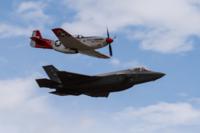
Christopher Nolan's epic space movie Interstellar is out this week on Blu-ray, DVD and Digital HD. Written with his brother and longtime collaborator Jonah Nolan, the movie uses its big-budget sci-fi platform to ask questions about man's place in the universe while at the same time exploring even more complex questions about how families connect with each other. Jonah talked with us about the science behind Interstellar and how the Nolans want their films to reward repeated viewings. The Blu-ray is loaded and includes a second Blu-ray disc for all the bonus material, including a 50-minute documentary called The Science of Interstellar and 14 mini-documentaries that detail various aspects of the production. This is a movie that rewards repeated viewing and the package (including a "collectible IMAX file cell" from an actual 70mm print) is worth the investment.
Here's what Jonah had to say about Interstellar.

I loved the movie in the theater, but then when I watched it on disc, it's a different movie in some ways. It's a much more of an intimate movie and more of a family theme comes through than played on the big screen. Any thoughts about that?
We spend years working on these movies, so you really want the audience to get more than their two, or in this case, two-and-a-half hours for their money. If they come back and watch it again, hopefully it operates on a totally different level.
Even with our emphasis on the scale and cinematic potential of what you can do with IMAX, when you get it home there better be a compelling story there, because without all the bells and whistles and without the seven-foot-tall speakers and the 50-foot-tall screen, you're still going to need to enjoy and engage with the story. Hopefully, at home people get a chance to enjoy all the details that my brother layers into these films and all of the details we try to layer into the script.
We always try to say our films benefit from multiple trips to the movie theater and that’s particularly true with the scientific concepts in this one. The second time through you can relax a bit, maybe have more of a grounding in some of the concepts. Hopefully, you can look at other layers of the story that you may not have been able to clock the first time through.

You worked with physicist Kip Thorne on this movie. For those of us less familiar with the science, how much of the physics in the film is grounded in reality and how much is creative license?
Kip has a great way of describing the concepts in the film. There are concepts that are known and verifiable. Then there are those that are speculation but within accepted parameters and what we think the universe is like. Finally, there are the flights of fancy that we grounded in science as much as we could. We spend an awfully long time thinking about everything in the film.
Simultaneously, we didn’t want the film to be a five-hour discourse on physics. It’s actually quite similar to 2001, a masterpiece that was a big influence on our film. A lot of people who enjoyed that film greatly benefitted from going back and reading Arthur C. Clarke's novelization of the film, which was written simultaneously. Kip wrote a book (The Science of Interstellar) talking about the physics in Interstellar as well. For anyone who’s interested, it's a great read.
Our idea was to build a solid runway, knowing that at some point the audience is going to need to take that leap of imagination. If our runway was grounded as much as possible in good science, the audience would come with us for even the bigger, more speculative and wild sequences like falling into a black hole.

One great example is the concept of a wormhole. It's something that the science fiction movie audience knows about in part because of Kip's work, as influenced by his friend, Carl Sagan and the movie Contact. Science fiction kind of from time immemorial has dealt with the concept of a wormhole. A wormhole is a very speculative idea, quite unlikely to exist in the universe. In Interstellar, we try to capitalize on the idea that, if we found a wormhole, we would probably know that another intelligent species had placed it there, because they're very, very unlikely to exist naturally.
%embed1%
Black holes are completely different. There are literally trillions of them in the universe. The phenomenon of black holes are widely understood. So we were playing in realms of both firmly-established science and then flights of fancy.
We needed a wormhole to facilitate our plot. If you do the grounded version of an Interstellar space travel film that takes place in the next generation or so, we're not going anywhere. We don’t have the capacity to go anywhere. Absent a wormhole, we are not making a trip even to the nearest star system that might conceivably have an earth-like planet. That’s well out of reach for humans right now, which is why the wormhole exists in the film. We find ourselves at an extreme moment in human history, at a moment in which we don’t have the capacity to find a new home. The wormhole appears to make that possible. Who put it there? That’s one of the driving questions in the film.

The interview excerpts from the Ken Burns documentary "The Dust Bowl" gave the movie’s ecological back story some real emotional weight.
That was a brilliant touch that Chris added. I had tried to conceive of a world-changing or life-threatening event that we hadn't quite seen before, that might have the feeling of reality to it. And then Chris added the idea of a blight.
I based it on the potato famine in the 19th century in Ireland and other blights that take place around us that most of us aren’t aware of. For instance, the bananas that we eat are a totally different banana from the ones our parents ate and a totally different banana from the one their parents ate. Each variety of banana is killed off generationally by a blight like the one we described in the films. It's not that hard to imagine something that comes along and eats our food better than we do.
What Chris added was this Dust Bowl idea: once the food is gone, the environment starts falling to bits. His idea that grounding the disaster in something that was well-established in recent American memory was a master stroke.
We're lucky enough to live in a country whose fortunes have increased for each generation. It's very hard for people to imagine things going backwards if you grow up in this country or if you grow up in the large parts of the West. It's very hard to imagine things getting worse for your kids than they were for us, but that’s happened throughout history and it happened in the Dust Bowl.

You’ve got a couple of big projects coming up.
Westworld will debut later in the year on HBO. It's a project I'm doing with my wife, Lisa Joy, and our great friend and partner, J.J. Abrams.
We reimagined the brilliant original Michael Crichton film and it's dealing with some questions that are near and dear to my heart, some things that we touched on tangentially in Interstellar: the emergence of artificial intelligence and the way that we will interact it. Interstellar was a bit of a departure for us in its warmth and humanism. This project is the opposite. It's very dark and definitely a different take on how we will interact with artificial intelligence.
Foundation is a set of brilliant Isaac Asimov books that are among my favorite books of all time. We're in an extremely fortunate position with HBO. The Asimov family working with us to bring these books to life in what we think is absolutely the best venue, which is the long-form television series. TV has transformed over the last decade. The capacity to think really big in television has created a space in which we can imagine whole worlds.
Foundation touches on some of the same themes in Interstellar. It's about the story of humanity as one that spans generations. Not just one individual life, but the way that lives connect one or the other, the way that we imbue our kids and our grandkids and the way that decisions we make impact them. So it's among my very, very favorite works of literature ever and a masterpiece of science fiction. We're very, very excited we're developing that as well.




